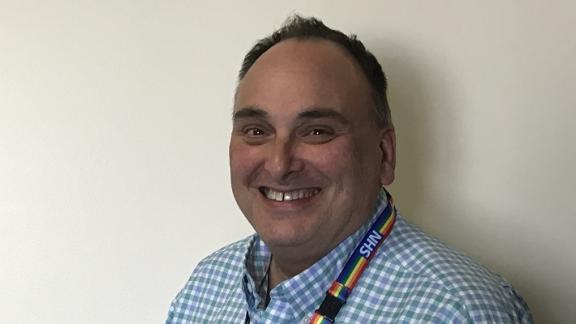Connecting to improve mental health support for children and young people

While Children’s Mental Health Week asks us to connect to support the mental health of children and young people, Ifti Majid reflects on progress being made in integrating care and No Wrong Door’s vision for mental health, learning disability and autism services.
It is Children’s Mental Health Week and improving mental health support for children and young people is more important now than ever.
The pandemic has had a significant impact on the mental health of children and young people with rates increasing in seven- to 16-year-olds:
- 1 in 6 (18 per cent) having a probable mental disorder in 2022 compared to 1 in 9 (12.1 per cent) in 2017.
The numbers are even worse in those aged 17 to 19:
- 1 in 4 (25.7 per cent) had a probable mental disorder in 2022, compared to 1 in 10 (10.1 per cent) in 2017.
Our members have told us that more and more children and young people are needing mental health support. This is increasing pressure across the whole system - in NHS specialist mental health services, but also in primary care, voluntary sector services, schools, social care, acute paediatric services and emergency services.
Interconnections and integration
The theme of this year’s Children’s Mental Health Week, Let’s Connect, is an important watch word, for how to design, commission and deliver mental health support for this age group. Children’s mental health policy, such as Future in Mind, often states that you need an integrated approach, which includes people with lived experience. While challenging, progress has been made in co-producing services with people with lived experience, and with initiatives such as the local transformation plans that, the then CCGs, local authorities and other partners had to develop.
There is a risk that the [major conditions] strategy may be skewed towards older people and may focus more on the other health conditions
We now know that the government will be developing a major conditions strategy, which will include mental ill health alongside diseases such as cancer, rather than a specific cross-government mental health plan. There are potential positives to the major conditions’ strategy, such as looking at the interconnections between mental health issues and physical health conditions. However, there is a risk that the strategy may be skewed towards older people and may focus more on the other health conditions. At the Mental Health Network, we will be working with other partners to ensure this is not the case.
Prevention is key
Last year, the Mental Health Network worked with the Centre for Mental Health to develop ‘No Wrong Door’, which sets out a vision for what mental health, learning disability and autism services should look like in ten years’ time for people of all ages. This vision was in part based on a major consultation exercise, which included people with lived experience, and calls for more investment and priority to be given to prevention and early intervention and the need to tackle health inequalities. The aim is that systems will use this vision to help inform their plans.
Every £1 invested in the service resulted in £6.20 of benefits
Investing in preventing children and young people’s mental health or prevention generally, will help save money in the longer term. Place2Be worked with the Pro Bono Economics to undertake a cost-benefit analysis of their counselling in schools work and found that for every £1 invested in the service, resulted in £6.20 of benefits. The service cost was £4.2 million, with an estimated benefit of £25.9 million for all children who received counselling.
We know that adult mental health problems often start in childhood, and if not picked up early with effective interventions, it is likely that they will go on to be adults with more serious mental illnesses. Not investing in preventative approaches and early intervention will cost more in the longer term. The challenge is, NHS funding and planning cycles are not long enough, in that you probably will not see the return on investment within a couple of years.
Putting ideas into action
The million-dollar question is how do we reduce the number of children and young people needing mental health support, and improve access to mental health services, for those who need them? Luckily, we know some of the answers and in many places they are being put into practice. Early intervention services in schools, such as those provided by Place2Be or mental health support teams, and digital services such as Kooth, and Think Ninja already help improve access to mental health support. These services, however, need to be commissioned and be part of an integrated local offer for children and young people and their families.
Mental health problems cost the UK economy at least £117.9 billion a year, and it is one of the leading causes of burden of disease worldwide. While we know what the impact of mental health problems are on the population, the focus is often on specialist mental health services, rather than investing properly in preventative approaches. We now have a real opportunity with the development of integrated care systems and the move to integrated working to seize the chance to make a real difference for our children and young people.
Ifti Majid is chief executive of Nottinghamshire Healthcare NHS Foundation Trust and also co-chair of the NHS Confederation’s BME Leadership Network. Follow Ifti and the BME Leadership Network on Twitter @Ifti_Majid @NHSC_BMELeaders



